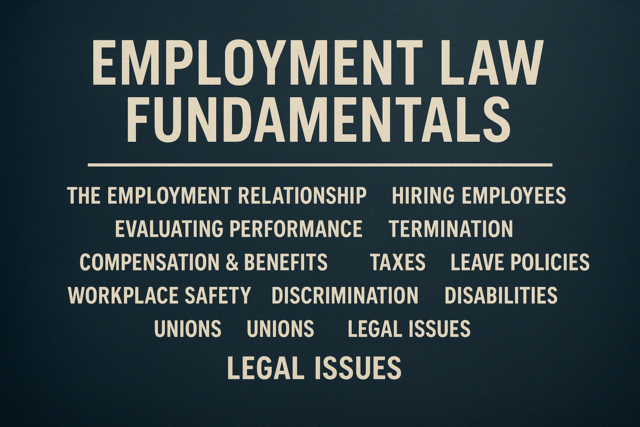The Workers' Compensation series of laws were enacted to protect injured workers by providing benefits to the worker and his or her family in the event of an on-the-job injury. Many Workers' Compensation claims are for injuries sustained on the job such as loss of limb from a serious machinery accident, while other claims are for repetitive motion injuries that occur over a long period of time, such as carpal tunnel syndrome. Other examples of claims are for the inhalation of dangerous chemicals or substances such as asbestos. Regardless of the type of injury you have sustained, there are two important considerations that you must take into account immediately after an accident. The first consideration, of course, is your health. You must seek the advice of a qualified medical professional to ascertain the exact nature of your injury, and to prevent any further, unintended damage.
If your injury is an emergency, you should seek immediate medical attention. If your injury is not an emergency, it is often a good idea to consult with your employer to ask if they have a preferred medical professional that handles injuries for their employees.
If your injury seems minor, you might be tempted to not begin the process of a formal Workers' Compensation claim. This can potentially be a very costly mistake that could result in a future claim being denied if your injury develops into a serious disability.
The second step is to at least consider seeking the advice of a qualified Workers' Compensation attorney. While an attorney might not be necessary in every Workers' Compensation claim, if your injury is of a serious nature, you should at least have an initial consultation with a qualified attorney who is knowledgeable about Workers' Compensation claims.
If your employer is trying to convince you not to file a Workers' Compensation claim, you should seek the advice of an attorney immediately. There are certain instances when an attorney is a necessary component of a Workers' Compensation claim. If you are in a situation where you feel your rights are being compromised, you should act immediately to protect them. In any case, it is often a good idea to have an attorney if your case goes before a court judge. We will discuss Workers' Compensation court cases in more detail later, but suffice it to say that if your case requires a court case, the services of an attorney might be required to ensure that your rights are fully protected.
Before filing a Workers' Compensation claim, a worker should notify their employer immediately that an injury has occurred. In most cases, there are very specific rules set by employers that determine how long you can wait until you notify them of an injury. Some employers require as little as 24 hour's notice. It is of paramount importance, therefore, that you notify your employer immediately. Failure to do so can result in many complications for you, including the denial of your Workers' Compensation claim.
If you are unable to notify your employer, due to, for example, the serious nature of your injury, within the specified time frame that your employer requires, then a representative can notify your employer on your behalf.
In certain cases, a written Workers' Compensation claim must be presented, as opposed to simply calling a claim into your employer's Workers' Compensation insurance company. A claim must be written if the insurer requests a written claim form, or if the worker requires weekly payments for more than twelve weeks, or if the worker has medical expenses of more than $7,500. Additionally, a written claim form should be submitted if the insurance company decides not to start liability payments and the worker disagrees with this decision.
After the claim is submitted, the insurance company will carefully consider the claim and decide if they will accept the claim. The insurance company will require many facts that are pertinent to the case and they might need to investigate both the employer and employee. If the worker has sought medical attention, the insurance company can seek your medical records pertaining to the injury. Within seven days of being informed of the injury, the insurance company must begin what is called provisional liability payments to the injured worker unless there is clear evidence that such payments are deemed unnecessary.
In most states, a claim for Workers' Compensation benefits must be made within six months of an injury. In some rare cases, this period may be extended for as long as three years, but a worker would not be entitled to Workers' Compensation benefits unless notice was given to the employer in a timely manner.
Promptly complete and return all Workers' Compensation forms to your employer as soon as possible. As stated previously, some employers require this to be done in a specific time frame, and some states have laws that govern the amount of time that can elapse before all forms can be submitted to your employer.
Workers Compensation benefits may include compensation for rehabilitation, disability income, job training, and other non-medical costs associated with your injury. Make sure you are aware of all of the benefits that your employer's insurance company offers, and also ensure that you receive all of the compensation that you should receive from the insurance company.
There is one final consideration in filing a Workers' Compensation claim. If you think that your injury was due to the deliberate misconduct of your employer, you might be best advised to file a lawsuit in addition to your Workers' Compensation claim. In almost all states, a worker can sue their employer for the intentional action of his or her employer. An example of intentional actions might be the known exposure to dangerous chemicals without first notifying the worker, and another common example is when an employer refuses to make a costly repair or upgrade of equipment and knowingly puts a worker in harm's way.
Employees can also sue their employers for other types of harm that is typically not covered by Workers' Compensation insurance. Examples include sexual harassment, damage to personal property, and illegal discrimination.
Finally, an employer may be sued in a separate lawsuit for the intentional mishandling of a Workers' Compensation claim by a worker or for retaliating against the employee for filing a claim. Examples of retaliation include demotions and termination.































